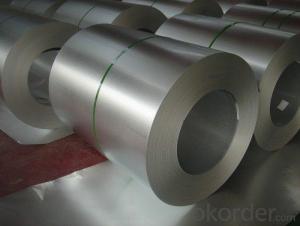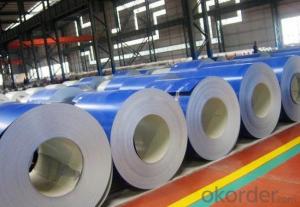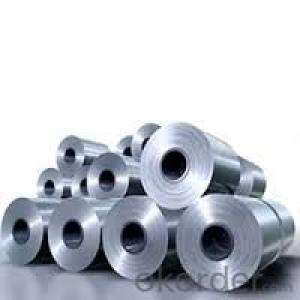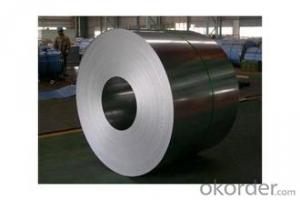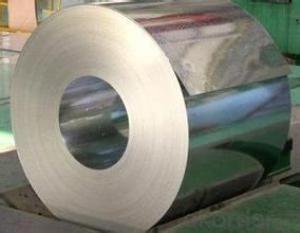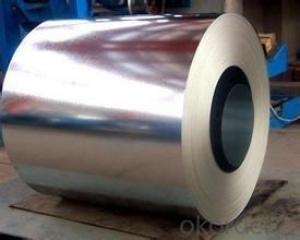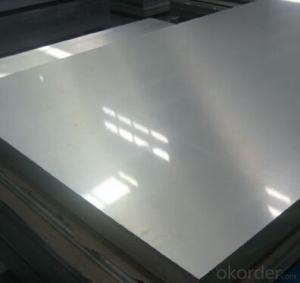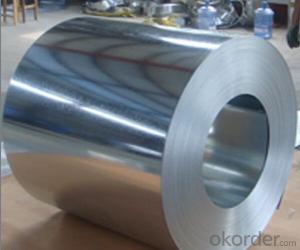Hot-Dip Galvanized/Aluzinc Steel Coil in Competitive Price and High Quality
- Loading Port:
- Shanghai
- Payment Terms:
- TT OR LC
- Min Order Qty:
- 100 m.t.
- Supply Capability:
- 10000 m.t./month
OKorder Service Pledge
OKorder Financial Service
You Might Also Like
Hot-dip Zinc Coating Steel Building Roof Walls
1.Structure of Hot-Dip Galvanized Steel Sheet Description:
Hot-dip galvanized steel coils are available with a pure zinc coating through the hot-dip galvanizing process. It offers the economy, strength and formability of steel combined with the corrosion resistance of zinc. The hot-dip process is the process by which steel gets coated in layers of zinc to protect against rust. It is especially useful for countless outdoor and industrial applications. Production of cold formed corrugated sheets and profiles for roofing, cladding, decking, tiles, sandwich walls, rainwater protective systems, air conditioning duct as well as electrical appliances and engineering.
2.Main Features of the Hot-Dip Galvanized Steel Sheet:
• Excellent process capability
• Smooth and flat surface
• Workability, durability
• Excellent anticorrosive property
• High strength
• Good formability
• Good visual effect
3.Hot-Dip Galvanized Steel Sheet Images
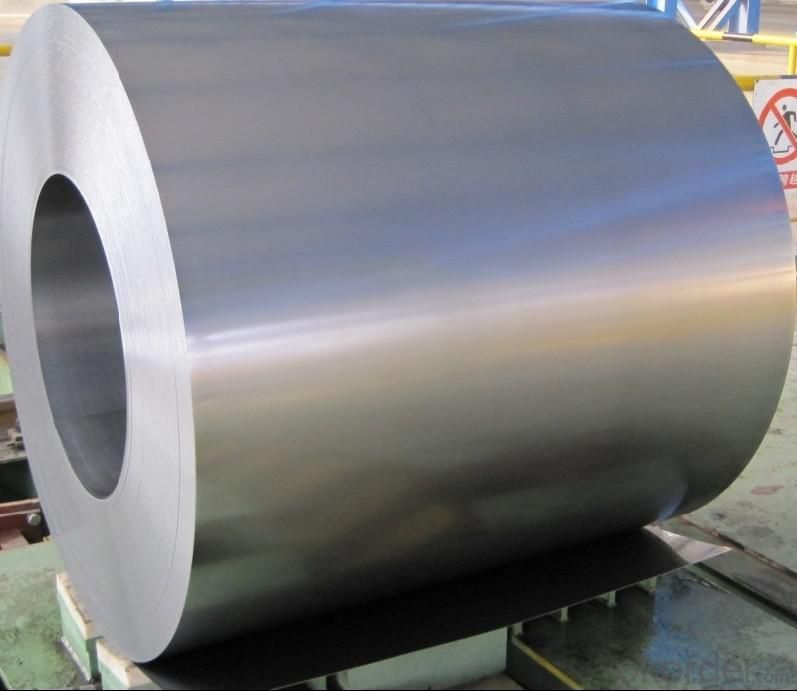
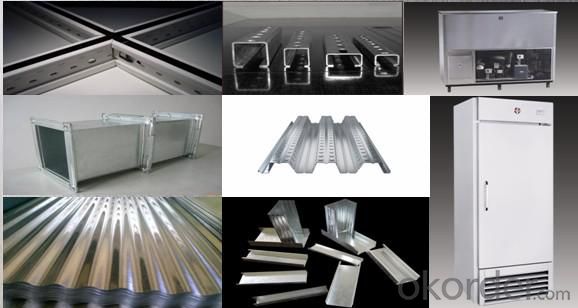
4.Hot-Dip Galvanized Steel Sheet Specification
Standard: ASTM, JIS,EN
Grade: CS, DX51D+Z,SGCC, SS 230~550,S220GD+Z~S550GD+Z, SGC340~SGC570
Thickness: 0.1mm~5mm
Width: max 2000mm
Coil weight:3-12 MT
Coil ID:508/610mm
Surface structure: zero spangle, regular spangle or minimum spangle
Surface treatment: Chromate treatment, Oiled/dry, skinpassed/non-skinpassed
Packing: Standard seaworthy export package
Technology test results:
| Processability | Yield strength | Elongation % | Elongation % | 180°cold-bending |
| Common PV | - | 270-500 | - | d=0,intact,no zinc removal |
| Mechanical interlocking JY | - | 270-500 | - | d=0,intact,no zinc removal |
| Structure JG | >=240 | >=370 | >=18 | d=0,intact,no zinc removal |
| Deep drawn SC | - | 270-380 | >=30 | d=0,intact,no zinc removal |
| EDDQ SC | - | 270-380 | >=30 | d=0,intact,no zinc removal |
5.FAQ of Hot-Dip Galvanized Steel Sheet
We have organized several common questions for our clients,may help you sincerely:
1.How about your company?
A world class manufacturer & supplier of castings forging in carbon steel and alloy steel,is one of the large-scale professional investment casting production bases in China,consisting of both casting foundry forging and machining factory. Annually more than 8000 tons Precision casting and forging parts are exported to markets in Europe,America and Japan. OEM casting and forging service available according to customer’s requirements.
2.How to guarantee the quality of the products?
We have established the international advanced quality management system,every link from raw material to final product we have strict quality test;We resolutely put an end to unqualified products flowing into the market. At the same time, we will provide necessary follow-up service assurance.
3. How long can we receive the product after purchase?
Usually within thirty working days after receiving buyer’s advance payment or LC. We will arrange the factory manufacturing as soon as possible. The cargo readiness usually takes 15-30 days, but the shipment will depend on the vessel situation.
- Q: What are the dimensions of steel coils used in the agricultural equipment industry?
- The dimensions of steel coils used in the agricultural equipment industry vary depending on the specific application and requirements of the equipment. However, some common dimensions for steel coils used in this industry range from 0.5mm to 6mm in thickness and 600mm to 2000mm in width. The length of the coils can be customized based on the needs of the specific equipment. Additionally, the weight of the coils can also vary, typically ranging from a few hundred kilograms to several tons. It is important to note that these dimensions are not fixed and may vary depending on the manufacturer and the specific agricultural equipment being produced.
- Q: How are steel coils used in the production of storage containers?
- Steel coils are an essential component in the production of storage containers. These coils, which are made from high-quality steel, are used to create the walls, floors, and roofs of the containers. The process begins with uncoiling the steel coil and passing it through a series of machines that cut and shape the steel into the desired dimensions. The steel is then formed into panels that are welded or riveted together to create the container's structure. Steel coils are an ideal material for storage containers due to their strength, durability, and resistance to corrosion. They provide a sturdy framework that can withstand heavy loads and harsh environmental conditions. Additionally, the coils can be easily molded and customized to meet specific size and shape requirements. Once the container's structure is complete, it is usually coated with a protective layer of paint or other coatings to further enhance its durability and resistance to weather elements. This ensures that the container can withstand exposure to moisture, UV rays, and other external factors that may cause deterioration. Overall, steel coils play a crucial role in the production of storage containers by providing the necessary strength and durability required to store and transport a wide range of goods and materials safely.
- Q: What is the type of stainless steel used in knifes.
- If your talking about a folding pocket knife, I think that it's basically six one way and a half dozen the other. I actually do prefer stainless for my pocket knives. I don't want to oil a knife to the degree I feel carbon requires, only to then stick it my pocket to attract dirt to the knife and oil to my pants. I'm the exact opposite on sheath knives though. I like 1095 carbon steel, plain edge sheath knives. I'll thrash on them HARD, and I rarely have major edge problems. Of course, I require them to be coated with some kind of powder coat or the like, because they can rust, but I do try and keep them clean and dry when in the sheath, so they won't pit the uncoated edge. My reasons for this sheath knife preference is multi-fold. First, these knives are simply affordable. I don't spend $80 dollars on a outdoors sheath knife. I use the tool too hard to want to spend more. I don't like the more traditional stainless steels such as AUS-8, 420HC, and 440C (not to mention the HORRENDOUS 440A) because I feel that the all else being equal, a stainless blade will bend before a carbon blade will break. I also think that carbon holds an edge at least as well, if not better, than traditional stainless, and it's much easier to hone. I don't know much about these new laminates, other than the very hard, but not so tough. They seem to be POSSIBLY too brittle for my use. That, combined with the fact that they cost a FORTUNE, means that I just won't be considering them.
- Q: How are steel coils unloaded from a truck?
- Steel coils are typically unloaded from a truck using a combination of heavy-duty forklifts, cranes, and specialized equipment. The coils are carefully lifted and positioned onto the ground or a designated storage area, ensuring proper safety measures and precautions are followed to prevent any damage or accidents during the unloading process.
- Q: How do steel coils compare to aluminum coils?
- Steel coils and aluminum coils possess distinct characteristics that render them suitable for varying purposes. Firstly, steel coils are renowned for their robustness and durability. They can endure high temperatures and exhibit greater resistance to damage in comparison to aluminum coils. Consequently, steel coils are an ideal choice for heavy-duty industrial applications necessitating sturdy materials, such as construction, automotive manufacturing, and the oil and gas industries. Additionally, steel coils boast heightened corrosion resistance, enabling their usage in outdoor environments characterized by harsh conditions. On the contrary, aluminum coils are lighter in weight and possess a higher strength-to-weight ratio than steel coils. This renders them exceptionally well-suited for industries wherein weight serves as a critical factor, such as aerospace and transportation. Furthermore, the malleability of aluminum coils facilitates easier shaping and forming, thereby proving advantageous in industries like packaging and consumer electronics. Moreover, aluminum coils exhibit superior thermal conductivity when compared to steel coils, rendering them more efficient in heat transfer applications. This particular attribute proves beneficial in industries such as HVAC (heating, ventilation, and air conditioning) and refrigeration, where the achievement of efficient heat exchange is of utmost importance. Concerning cost, steel coils generally prove more affordable due to the lower cost of raw materials. However, aluminum coils can yield long-term cost savings as they require less maintenance and possess a longer lifespan owing to their resistance to corrosion. In conclusion, the selection between steel coils and aluminum coils hinges on the specific requirements of the application at hand. Steel coils are favored for their strength, durability, and corrosion resistance, while aluminum coils excel in lightweight applications, heat transfer, and malleability.
- Q: Can steel coils be coated with weather-resistant materials?
- Yes, steel coils can be coated with weather-resistant materials. Coating steel coils with weather-resistant materials helps to protect them from corrosion and other weather-related damages, extending their lifespan and ensuring their durability in various weather conditions.
- Q: i currently have just steel guitar strings, not a fan they need replacing and i was wondering whats the difference between steel and bronze strings and or nickle strings?
- Not all strings have a steel core. There are different substances used for the core on metal guitar strings (not even mentioning nylons), but the market is predominated by a steel core. The tonal properties of what steel strings are wound up by can make a great difference to the overall sound of an instrument. In general, nickel strings are bright but give off well-rounded frequencies and have properties that make them perfect for use with magnetic pickups, such as those used in electric guitars. Bronze-wound strings are a little mellower in timbre but give off more high-low (harmonically rich) frequencies and are favorites on acoustic steel-string guitars. Silk and steel-wound guitar strings are the mellowest sounding and give off more low-mid frequencies than the others. They are generally used for folky types of acoustic playing where little attack is needed. There are others but I won't mention them because you won't find them easily. There are other factors and merits of each type of string like how long they last - Nickel resists corrosion the most; bronze less so; bare steel oxidizes very easily. There is also the way the string is wound to take into account (flat-wound, etc. like the other answerer mentioned).
- Q: How are steel coils used in the production of transportation equipment?
- Steel coils are used in the production of transportation equipment, such as automobiles, ships, and trains, to create various structural components. These coils are typically shaped and formed into parts like chassis, frames, bodies, and panels, providing strength, durability, and stability to the vehicles. Additionally, steel coils can be used in the manufacturing of wheels, axles, and suspension systems, ensuring reliable performance and safety in transportation equipment.
- Q: How are steel coils used in the production of industrial valves?
- Steel coils are used in the production of industrial valves as they are typically cut and formed into various components, such as valve bodies and stems. The coils provide a strong and durable material for the valves, ensuring their reliability and longevity in industrial applications.
- Q: With the Reduced weight of steel,wouldn't the projectile be at a much higher velocity when fired causing more damage?I mean l couldn't steel be worked to seal the bore,not damage the rifling and still cheap enough to mass produce,and be light enough to carry much more ammo.
- As others have mentioned, steel lacks the ductility to conform to rifling and seal the bore. Cannon projectiles, which usually are made of steel, overcome this problem by using one or more driving bands of softer metal, usually brass or bronze, but sometimes even plastic, on the circumference of the projectile, usually close to the base. The body of the projectile rides on the lands, while the driving band fills the grooves, seals the bore and imparts the stabilizing spin to the projectile.
Send your message to us
Hot-Dip Galvanized/Aluzinc Steel Coil in Competitive Price and High Quality
- Loading Port:
- Shanghai
- Payment Terms:
- TT OR LC
- Min Order Qty:
- 100 m.t.
- Supply Capability:
- 10000 m.t./month
OKorder Service Pledge
OKorder Financial Service
Similar products
Hot products
Hot Searches
Related keywords
